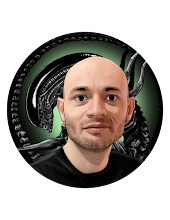Medicine: Traditional Vs Alternative (An Inside Look)
Here you won't read
about someone who sees the world just as black or white. Therefore,
if you're passionately in favor or against mainstream or alternative
medicine, you should probably stop reading right now and start
looking someplace else.
Having said that,
what you will read here is the experience of someone who has tried
both kinds of treatments and has seen the upsides and drawbacks of
the two approaches.
Personally, I've
been suffering from two different chronic conditions for about 5
years. And this is one of the main reasons why people feel attracted
to what it's called traditional or natural medicine in the first
place. Because of the fact that they're incurable these days and the
drugs you have to take cause all sorts of undesirable side effects.
Trust me, I know about this only too well.
General
practitioners and specialists can't usually spend as much time as it
would be ideal with their patients, and we end up feeling as if they
don't truly care enough about us.
So, what to do when
we feel desperate to find a solution to our problem? It's simple, we
all know someone who's absolutely into alternative medicine and says
nothing but wonders about it. And guess what? We give it a try with
the hope of finally finding a cure to something where mainstream
medicine has completely failed.
The outcome varies
depending on the kind of 'miracle-maker' you're consulting, the
treatment and our personal illness. Just like I told you at the
beginning, world is not just black or white. There are tons and tons
of greys and for some people herbal medicine (also known as old
wive's tales), homeopathy or reflexology are the Holy Grail, whereas
for others -me included- these types of natural solutions have proved
to fail over and over again, with some exceptions, though.
Greys. The
physiotherapist who have been treating me for over a decade is the
perfect example of the mix between mainstream and alternative
treatments. Physiotherapy mingled with other techniques such as
osteopathy and acupuncture have proved utterly effective when it
comes to relieving some of the pain I bear on a daily basis.
However, trying to
deal with I.B.S.
(Irritable Bowel Syndrome) with chronic constipation, haemorrhoids,
and a daily chronic tension
headache whose inception was a migraine
caused by an overly high prescribed dose of antibiotics to treat a
U.T.I.
(Urinary Tract Infection) as a result of a renal
colic with homeopathy...
Well, I think it's self-explanatory. For me, and as a consequence of
having tried what a highly popular homeopath here in Tenerife
explained that I should do after over 2 months, was nothing but
seeing my symptoms and problems worsen quite seriously.
On the other hand,
and as you've just read, my headaches were caused by a doctor who
prescribed me a terribly wrong dose of antibiotics and, moreover, the
fact that it became chronic was the outcome of not having been
prescribed the right kind of drug when it began. Therefore, I don't
think we should always trust our doctors blindly without checking for
ourselves or trying to ask for a second opinion, or doing something
as simple as ask our pharmacist.
If I had known as
much as I do now about my issues back then, I wouldn't have reached
this 'critic point' and I'd be able to carry a rather 'normal' life.
To sum up, do what
you think it's more appropriate. However, I urgently recommend you to
always do a thorough research beforehand and inform both your doctor
and alternative 'healer' of what you're taking and trying to achieve.
Be realistic, a cancer won't be healed by a homeopath, and taking pills
is not always the best approach to relieve a backache.
Useful References:




0 Comments:
Publicar un comentario
<< Home